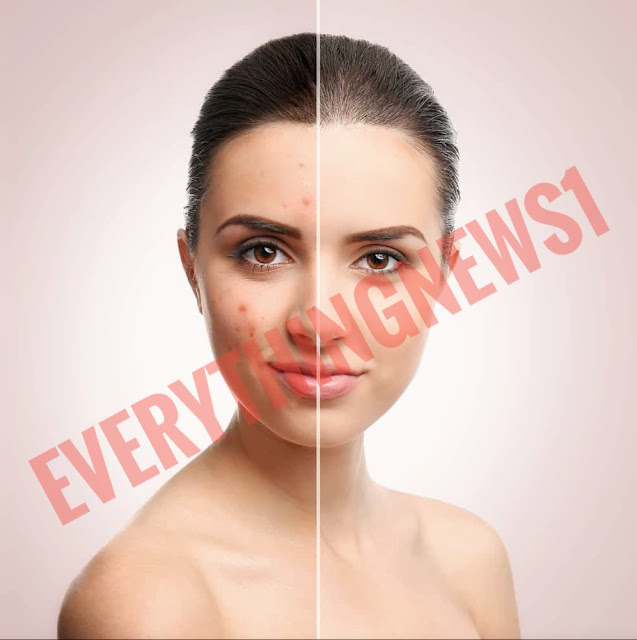Ways to prevent acne
Acne is a common skin disorder that can lead to several types of blemishes, some of which include pimples, whiteheads, and blackheads. Fortunately, there are many ways to help prevent acne. In fact, dermatologists have identified four factors that contribute to the development of acne:
Clogged pores in the skin, due to increased sebum production.
A buildup of dead skin cells, which can also clog pores.
Propionibacterium acnes, known as (P. acnes) in the pores, which incites the appearance of grains and pimples.
Inflammation of the skin that also leads to redness.
A doctor can help identify the factor or combination of factors that cause acne, however many of the treatment and prevention methods are the same, regardless of the cause. Read on to learn about a number of tips that may help you prevent acne.
1- Wash your face properly
One of the most important steps necessary to prevent acne is to remove excess oil, dirt and sweat by washing the face daily. However, washing the face more than twice a day may make the condition worse. Washing the face with harsh cleansers that dry the skin should be avoided. It is recommended to use an alcohol-free cleanser. In general, doctors recommend the following to wash your face:
- It is best to use warm, not hot, water.
- Use a mild cleanser in a gentle, circular motion with your fingers, not a cloth.
- Rinse the face well and leave it to dry.
2- The relationship between acne and skin type
Pimples and blemishes can appear in anyone, regardless of their skin type. But oily skin is more susceptible to infection, as a result of the sebaceous glands in the skin secreting a lot of oily sebum. Mixed skin that contains dry areas and oily areas is also prone to the appearance of grains. Fatty areas tend to be on the forehead, nose and chin, which is also called the T-zone.
Keep in mind that knowing the type of skin helps to choose the right care products for it; For example, if you have oily skin, you should choose non-comedogenic (non-comedogenic) products that are designed so that they will not block the pores in the skin.
3- Moisturizing the skin
Moisturizing creams help keep the skin healthy. But many moisturizers contain oil, synthetic fragrance, or other ingredients that may irritate the skin and cause breakouts. Therefore, it is recommended to use fragrance-free, non-comedogenic (non-comedogenic) moisturizers after washing the face or when the skin is dry.
4- Using over-the-counter acne treatments
Over-the-counter (OTC) acne treatments may help clear up pimples quickly or prevent them from appearing in the first place. Most of these treatments contain either benzoyl peroxide, salicylic acid, or sulfur.
5- The importance of water in preventing acne
If dehydration occurs, the sebaceous glands in the skin may be stimulated to produce more sebum. Dry skin also gives it a dull appearance and promotes inflammation and redness. To keep the body adequately hydrated, it is recommended to drink at least eight to seven glasses of water per day, and more if you are pregnant and breastfeeding, or after exercise or spending time in a hot and humid environment.
6- Limit the use of cosmetic products
It's tempting to use makeup to cover up your pimples, yet doing so can clog your pores and lead to an outbreak. When applying makeup of all kinds, you should avoid greasy and heavy foundations, and use water-based or non-comedogenic (non-comedogenic), transparent, and fragrance-free products.
On the other hand, greasy shampoos or body washes, shaving creams, and hair styling products may cause acne. In order to prevent acne, it is recommended to choose oil-free and non-comedogenic cosmetic products.
7- Keeping facial care products clean
Makeup brushes and sponges should be cleaned regularly with soap and water to prevent bacteria build-up, which can cause acne.
8- Not touching the face
Hands are constantly confronted with dirt and bacteria throughout the day, and every time the face is touched, some pore-clogging impurities can be transferred to the skin.
9- Reducing sun exposure helps prevent acne
Frequent exposure to the sun dries out the skin, which leads to more sebum production and clogged pores. It's important to use a non-comedogenic, oil-free sunscreen to help prevent both skin cancer and acne breakouts.
10- Avoid messing with pimples
It can be tempting to squeeze those whiteheads on the tip of your nose. However, squeezing pimples can cause bleeding, severe scarring, or infection. It may also increase inflammation and block surrounding pores, making the problem worse.
Although acne is not considered a serious health condition, it is one of the problems that can affect your social life.



Comments